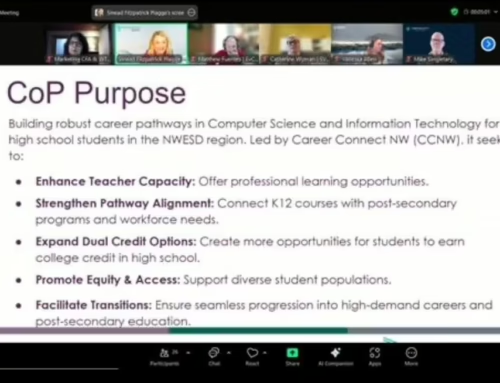The other day I was re-watching a TEDx Talk from Dan Finkel on YouTube and was struck by his opening lines:
“The beauty and power of mathematical thinking have changed my life. But I know that many people lived a very different story. Math can be the best of times or the worst of times, an exhilarating journey of discovery or descent into tedium, frustration, and despair.”
~ Dan Finkel
Dear readers, I pose these questions to you:
1). How do you feel about math?
2) What was your experience learning mathematics growing up?
Sadly, when I asked my education colleagues these same questions, more than half said their experience was either nothing extraordinary or downright traumatizing.
I made a similar observation while attending several different learning opportunities where this question was asked. One piece of good news, though: having a negative experience actually motivates educators to create a positive more impactful learning experience for their students.
Educators need the tools and learning experiences to shift our practice from math drills to enjoyable and deep understanding. And I am here to say that there are wonderful research-based materials and practices that help us do just that.
One of the best things we can do is to find opportunities for students to engage in discourse and share their thinking. Gameplay in math is a wonderful way to provide engagement in learning and enjoyable practice. Gameplay also provides students opportunities to think aloud and share their thoughts with others. Creating lots of opportunities for think-alouds is especially good for students who struggle in the most in learning mathematics (Frye et al., 2013; Gersten & Clarke, 2007).
Here are two games to try:
- 1-2 NIM is fun for kids and adults. Students engage in examining patterns and can connect basic counting, and arithmetic up to division. See this New York Times Wordplay article where you can play virtually. Numberplay: Let’s Play 1-2 NIM by G. Antonick contributors K. Cook, and D. Finkel
- Penny, Nickel, Dime is a great game for students in grades 2, 3, 4, or 5 where they can practice place value, money, addition, estimation, and multiplying by fives and tens. This is also easy to play at home. Instructions and printable materials are available from mathforlove.com.
Let us continue to change the narrative from “I hate math.” to “I love math!” The NWESD is partnering with the NW Washington STEM Network to present two amazing opportunities coming up to assist with this viewpoint:
- “Games: Ways to Build Math Fluency” led by the NWESD’s own Tina Mott, Regional Math Coordinator. Register: Games: Ways to Build Math Fluency (pdenroller.org)
- “Inspiring Math for All,” a workshop with Dan Finkel, co-founder of Math For Love: Saturday, May 20, 2023, from 9 am-3:30 pm. Register: Inspiring Math for All (pdenroller.org)
I hope to see you all in these math-positive spaces!




